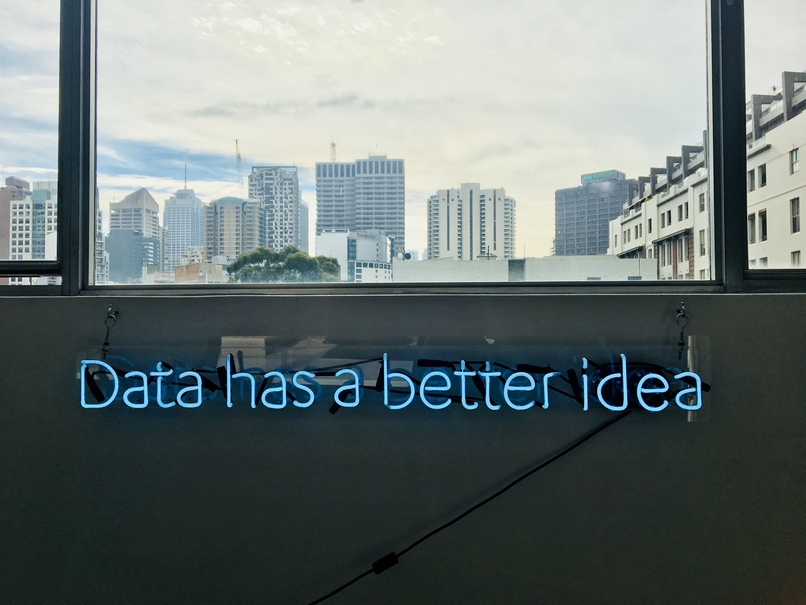
Explore the most defining factor of the present and future of fashion.
With Artificial Intelligence taking over every existing industry across the globe, from legacy companies to new start-ups, AI is the present and the future. At the moment, AI is a buzzword tossed around, but how does it apply to our everyday lives, specifically in the fashion world?
Contributing Editor Reefaya finds out below.
With Artificial Intelligence taking over every existing industry across the globe, from legacy companies to new start-ups, AI is the present and the future. At the moment, AI is a buzzword tossed around, but how does it apply to our everyday lives, specifically in the fashion world?
Fashion is one of the largest industries globally, and revenues in the international apparel market are expected to reach $2.25 trillion by 2025. AI is being used to amplify productivity in manufacturing clothes, producing customized apparel and personalizing the customer experience. The fashion world moves by optimizing AI systems to anticipate possible trends and define which consumer inclinations are declining. The marriage between AI and algorithm analyzes previous designs and future trends in order to set out present trends on the market or suggest shoppable brands or products to customers based on their past preferences Furthermore, AI enables tangible and digital creativity for companies and designers, producing truly customized items for consumers. Mega online retailers such as ASOS uses AI digital assistants to recommend clothes to customers based on their height, weight, shape, and current size. Another example, ModiFace specializes in Augmented Reality for virtual beauty supplied to beauty conglomerates like L’Oréal or Sephora. However, there is the usual drawback, on average about 40% of online purchases are ultimately returned.
The practicality of AI is being tested but nonetheless already permanently instilled in the fashion industry. According to the Capgemini survey, AI could support retailers to save $340 billion annually by the year 2022 by enabling competency in several processes and operations. Outside of the retail space, independent designers are using AI in fashion by using it to examine and deliver trends according to consumer behaviour, analyzing best supply and demand strategies, and reducing the number of wasted clothes. For example, Stitch Fix, founded by Katrina Lake, provides personal style for both men and women by using data from customers and clients to create accurate results for users.

Different technologies of AI are applied in different pools of the fashion industry. Technologies range from recommendation systems, human computation, logistics optimization, state machines, demand modelling and a data platform. While these are the growing contributions of AI in this industry, AI plays a major role in the eco-fashion sector. The fashion industry is responsible for 10% of global carbon dioxide emissions, 20% of the world’s industrial wastewater and 25% of all insecticides cast-off in the industry. With AI in the scene, it can be utilized to combat this catch by reducing inventory levels, adopting the three R’s (reduce, reuse, and recycle) and improving working conditions. Methods like Deep Learning, Natural Language Processing, Visual Recognition, and Data Analytics can be used to reduce errors in trend estimates and calculate trends accurately leading to the reduction of cloth production. To further stress, AI and virtualization are becoming the key fundamental aspects of fashion. Virtual models are immensely helping designers by virtually allowing them to showcase their latest creations worldwide, particularly during COVID-19. A prime example like Shudu Gram is a CGI model created by visual artist and photographer Cameron-James Wilson. Shudu has a growing fan base on Instagram and is endorsed by major French couture houses like CHANEL and BALMAIN in order to depict which product consumers are gravitating to. Automation and predictive modeling are laying out smoother consumer experiences by taking crucial steps to eliminate waste via digital fashion.
The role of Data Analytics in the fashion industry is the stepping stone for fashion professionals and retailers to boost sales and margins. The importance of AI-powered data analytics applications is the gateway to making a data-driven approach for better fashion design, merchandising and marketing strategies. According to the JDA Software Inc. 2018 survey, about 43% of fashion brands and retailers planned to invest in customer-based data science in the coming years for altering customer data into personalized merchandising assortments based on consumers lifestyles and localized trends. To simplify, data analytics begins with descriptive analytics concentrating on briefing data in the current market. Big data analytics proceeds with advanced, predictive analytics including classical statistics, machine and deep learning such as neural networks from data to generate recommendations for possible scenarios. Demographics like gender, age, or income is analyzed for deeper insight on understanding consumers. The core responsibility of fashion data analytics includes utilizing digital information to forecast consumer trends and behavior to maximize profits. In addition, many employees within this growing sector are from STEM academic and professional backgrounds, furthermore diversifying the industry to meet future demands.
The benefits and power of Artificial Intelligence are unavoidable for the foreseeing future of fashion, including the use of data analytics. AI is imperative to develop better customer experience, trend prediction, and producing sustainable solutions. Combining big data and AI in fashion-based businesses can help these institutions analyze customer behavior and purchasing patterns that has a direct effect on the market’s supply-demand dynamics. With AI ruling all industries, soon consumers will have various options from picking outfits from ZOOM calls to virtually appearing on Paris fashion week.
About The Editor
Born in Bangladesh and raised in the Middle East, UAE and Bahrain, Reefaya is a postgraduate from The London School of Economics in U.K. and an undergraduate from Sussex University. Reefaya has an immense love for sustainable fashion, social development and art.


